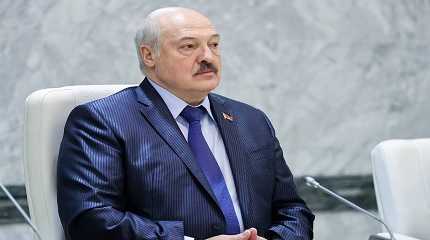
Aug 1 (Reuters) - Belarusian leader Alexander Lukashenko on Tuesday taunted Poland over the presence of Russian Wagner mercenaries near the NATO country's border, saying Warsaw should thank him for keeping them in check.
An unspecified number of the Wagner fighters who staged a brief mutiny in Russia in June have since moved to Belarus and have begun training Lukashenko's army, prompting Poland to start moving more than 1,000 of its own troops closer to the border.
Lukashenko, a close ally of Russian President Vladimir Putin, joked at a meeting with him last month that some of the fighters were keen to press into Poland and "go on a trip to Warsaw and Rzeszow".
State news agency Belta quoted him on Tuesday as saying that the Poles "should pray that we're holding onto (the Wagner fighters) and providing for them. Otherwise, without us, they would have seeped through and smashed up Rzeszow and Warsaw in no small way. So they shouldn't reproach me, they should say thank you."
Rzeszow is a city in southeast Poland near the Ukrainian border.
On Saturday, Polish Prime Minister Mateusz Morawiecki said a group of 100 Wagner fighters had moved closer to the Belarusian city of Grodno near the Polish border, describing the situation as "increasingly dangerous".
Lukashenko, in his latest comments, appeared at first to deny that, then immediately to row back on the denial.
"Suddenly, I hear recently, Poland went berserk that allegedly some detachment is coming here, as many as 100 people," he said.
"No Wagner detachments of 100 people moved here. And if they did, then only to transfer their military experience to (Belarusian) brigades concentrated in Brest and Grodno."
Lukashenko has helped Putin in the Ukraine war by letting him launch it in part from Belarusian territory and allowing the use of his bases to train Russian troops.
He has not committed his own troops to the war but has said they will benefit from training by Wagner, which took part in some of the fiercest battles of the conflict.
"I have to teach my military, because an army that does not fight is half an army," he said.




